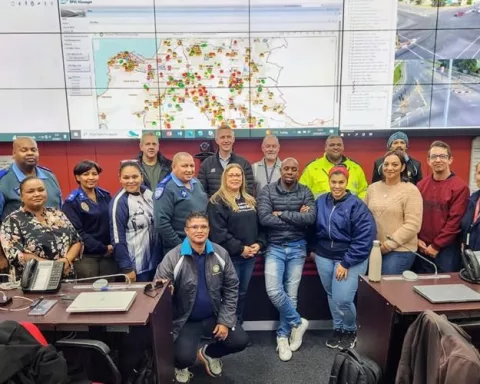At a recent event in Cape Town, Deputy Minister of Higher Education, Science, and Innovation, Mr. Buti Manamela, addressed high school learners about the Decade of the Artisan advocacy campaign. This ambitious initiative is designed to promote artisanship as a crucial career choice in the modern world and spur South Africa’s economic growth.
As the theme “It’s cool to be a 21st-century artisan” permeated through the crowd at Northlink TVET College, the Deputy Minister’s enthusiasm for artisanship and its potential to revolutionize the nation’s economy was evident. His passion inspired the young learners to contemplate a future in this industry.
The Decade of the Artisan programme is a unique blend of educational resources, partnerships with various industries, and support from post-school education and training institutions, SETAs, NSFAS, and others. By exposing learners to a wide range of opportunities and resources, the programme aims to motivate and inform them about the importance of artisanship and the critical role it could play in improving South Africa’s economy.
A Collaborative Approach to Empowering Artisans
One of the campaign’s primary objectives is to create approximately 30,000 artisans per year by 2030, which would significantly contribute to the nation’s economic development goals. This ambitious target is based on the understanding that a skilled workforce can drive innovation and technological advancements, resulting in sustainable growth and success.
In addition to focusing on the learners, the Decade of the Artisan initiative also seeks to empower Life-Orientation teachers, Community Development Workers, and Student Support Services Officers by training them to become Artisan Ambassadors. These ambassadors will play an essential role in educating and inspiring future artisans, assisting them in navigating the various career paths and opportunities within this field.
The Northlink TVET College event showcased the collaborative spirit of the Decade of the Artisan programme. Numerous exhibitors from different industries and institutions gathered to display their offerings, providing learners with an in-depth understanding of the diverse world of artisanship.
Thanks to this collaborative approach, learners gained first-hand experience of the many aspects of artisanship, from traditional craftsmanship to state-of-the-art technological innovations. This exposure not only expanded their horizons but also underscored the relevance of artisanship in the modern era and its ability to address vital scarce skills that can boost the nation’s economy.
Shaping the Future of South Africa through Artisanship
The potential of artisanship to fuel economic growth and create job opportunities is immense. Throughout history, artisans have played a critical role in shaping societies with their specialized abilities and expertise. In contemporary times, the importance of artisanship has evolved, integrating with technological advancements and innovative problem-solving techniques.
The Decade of the Artisan programme recognizes this evolution and emphasizes the need to foster a new generation of artisans equipped with the knowledge, skills, and creativity required to thrive in today’s job market. By promoting artisanship as a viable and rewarding career choice, the initiative aims to create a domino effect, inspiring South African youth to actively contribute to the country’s economic development.
Deputy Minister Manamela repeatedly highlighted the importance of nurturing a skilled workforce capable of adapting to the ever-changing global economy throughout the event. By championing artisanship and urging young South Africans to explore its potential, the Decade of the Artisan programme strives to establish a future characterized by innovation, entrepreneurship, and sustainable economic expansion.
As the event concluded, the high school learners’ excitement and eagerness were palpable. Motivated by the opportunities offered by artisanship, these young individuals departed with a newfound appreciation for the potential of this field to shape not only their futures but also the future of South Africa.
The Decade of the Artisan programme is a critical step towards building a brighter future for South Africa. By nurturing a new generation of skilled artisans capable of driving the country’s economic growth, this initiative promises to unlock countless opportunities and pave the way for a thriving tomorrow.








